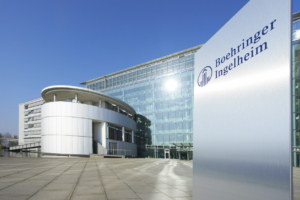
Boehringer Ingelheim enters €410m licence deal with Kyowa Kirin Co., Ltd.
Boehringer Intelheim is expanding its antfibrotics pipeline licencing a first-in-class treatment for fibro-inflammatory diseases from Kyowa Kirin Co. Ltd.
Under the terms of a new licencing and co-development deal, Boehringer Ingelheim will receive the exclusive, worldwide rights from Kyowa Kirin to develop novel, first-in-class treatments for fibro-inflammatory diseases. Kyowa Kirin is eligible to receive up to €410m comprising of an upfront payment, success-based development, regulatory, and commercial milestone payments, in addition to royalties on sales.
The companies did not diclose any details concerning the target, development stage or mode of action of Kyowa Kirin’s compound. However there is a huge market behind the vague term Fibro-inflammatorym diseases, which include indications such as systemic sclerosis, inflammatory bowel disease, or lung fibrosis, which account for more than one third of deaths worldwide. according to the company’s press release.
Two years ago, collaborators with the Japanese company from Northwestern University and Mayo Clinic reported the discovery of a new target that ameliorates fibrotic remodelling in systemic sclerosis. In mice, the group led by John Varga boosted NAD+ via genetic or pharmacological CD38 targeting or NAD+ precursor supplementation, which protected mice from skin, lung, and peritoneal fibrosis. In mechanistic experiments, CD38 was found to reduce NAD+ levels and sirtuin activity to augment cellular fibrotic responses, while inhibiting CD38 had the opposite effect. Thus, CD38 upregulation and resulting disrupted NAD+ homeostasis was identified as a fibrosis driver in systemic sclerosis, suggesting that CD38 might represent a novel therapeutic target. Kirin Kyowa, however has not disclosed any information about further research on compounds targeting CD38.
Boehringer Ingelheim is a global leader in the research and development of treatments for fibro-inflammatory diseases. The company has pioneered the treatment of pulmonary fibrosis with the introduction of nintedanib, approved for the treatment of idiopathic pulmonary fibrosis (IPF), progressive fibrosing interstitial lung diseases (PF/ILD) and systemic sclerosis-associated interstitial lung disease (SSc-ILD). Early Phase II data of BI 1015550, a phosphodiesterase 4B (PDE4B) inhibitor, showed a 98% probability that the compound was superior to placebo in slowing down the worsening of lung function in people with IPFis. Currently BI 1015550 is being investigated in Phase III studies in patients with IPF and with other progressive fibrosing ILDs.


 Boehringer Ingelheim
Boehringer Ingelheim
 Genentech Corp. / Roche
Genentech Corp. / Roche